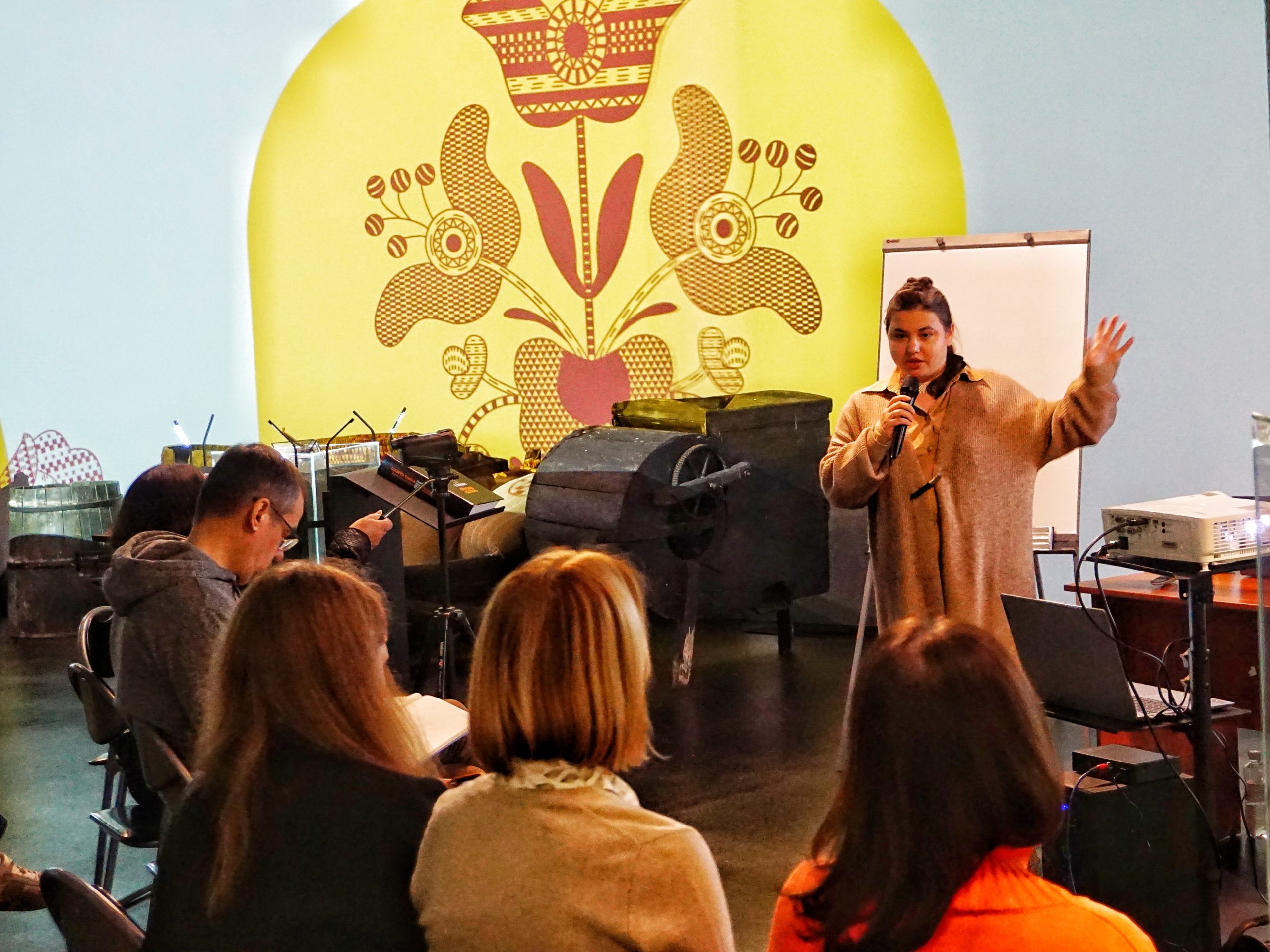Holodomor trauma: a meeting with a psychologist
On October 22, the Holodomor Museum hosted a meeting with psychologist Dina Veselkova on “Transgenerational trauma: why we study our family history?”. Together with the specialist, our visitors searched for answers to the questions of how the Holodomor affects our lives to this day, how transgenerational trauma is transmitted, how the family history affects our and our children’s behaviour, how to get rid of the negative impact of trauma, and where to find resources to withstand psychologically in current warfare.
The results of a study conducted in Ukraine in 2003-2008 vividly illustrate the consequences of trauma received during the Holodomor. At that time, 500 people who survived the Holodomor as children were interviewed, along with 500 respondents who, at that time, lived in Western Ukraine and did not experience such trauma. It turned out that 78% of those who survived the Holodomor had an unconscious inferiority syndrome, compared to only 32% in the control group. Additionally, 57% of respondents from the Holodomor region showed low self-efficacy, while only 17% from the control group did. Moreover, 66% of respondents from the Holodomor region showed a low level of achievement (when a person sets simpler goals than they can actually achieve), compared to 33% in the control group. These results once again prove that the Holodomor completely changed Ukrainians’ values, and its consequence was the emergence of a new person: passive, insecure, submissive, ready to follow orders and work for nothing. Also, parents continue to pass on this behaviour model to their children.
Dina Veselkova shared her family story with those present: “My great-grandfather was repressed, but I learned about this not from relatives but from the archives because this topic was silenced in the family. The strategy of avoiding – conversations and triggers – is also one of the signs of trauma, – says the psychologist. – Interestingly, my grandfather adored the Soviet government and this is also the result of the trauma. His father was repressed and destroyed by this government, and the descendant subconsciously chose this model of behaviour. He said, if I behave like this, I will not be punished or repressed.”
During the lecture, there was also a practical session where the visitors worked with a psychologist to create their own genogram. Unlike a traditional family tree, a genogram shows family relationships and can help identify patterns and psychological factors. This can be helpful in identifying hereditary characteristics and tendencies that may influence the behaviour of future generations.
The active participation of our audience in the discussion and their own family stories show the visitors’ sincere interest in this topic. Later, the recording of the meeting with the psychologist will be posted on our YouTube page.
DOSSIER
Dina Veselkova, psychologist, systemic family therapist, head of the systemic family psychotherapy section of the Ukrainian Union of Psychotherapists, host of the psychoeducational YouTube channel “Dina Veselkova” and author of a video about the psychological consequences of the Holodomor.
